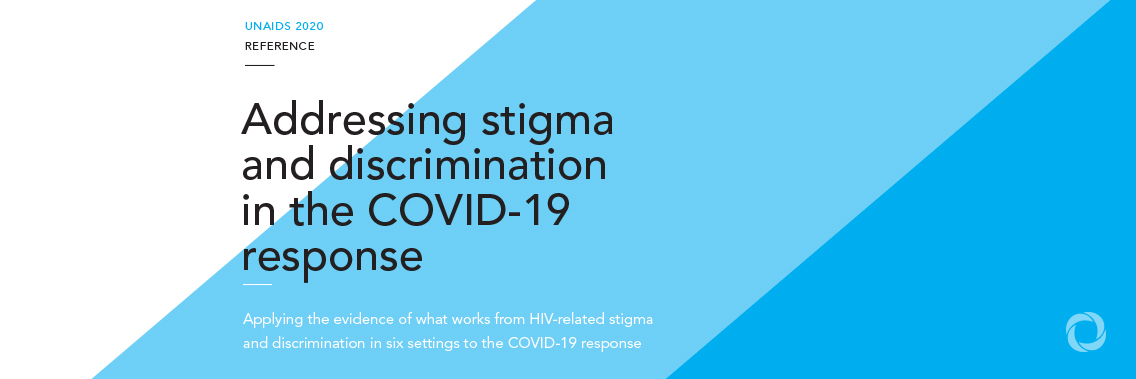Drawing on 40 years of experience from the AIDS response, UNAIDS is issuing new guidance on how to reduce stigma and discrimination in the context of COVID-19. The guidance is based on the latest evidence on what works to reduce HIV-related stigma and discrimination and applies it to COVID-19.
Since the start of the COVID-19 pandemic, numerous forms of stigma and discrimination have been reported, including xenophobia directed at people thought to be responsible for bringing COVID-19 into countries, attacks on health-care workers, and verbal and physical abuse towards people who have recovered from COVID-19. Attacks on populations facing pre-existing stigma and discrimination, including people living with HIV, people from gender and sexual minorities, sex workers, and migrants, have also been reported.
“In the wake of the fear and uncertainty that emerge during a pandemic, stigma and discrimination quickly follow,” said Winnie Byanyima, Executive Director of UNAIDS. “Stigma and discrimination is counterproductive. It exposes people to violence, harassment, and isolation, stops people from accessing health services, and prevents public health measures from effectively controlling pandemics.”
Addressing stigma and discrimination in the COVID-19 response provides countries with rights-based guidance through education, support, referrals, and other interventions. It offers solutions across six specific areas: community, workplace, education, health care, justice, and emergency/humanitarian settings.
As with the HIV epidemic, stigma and discrimination can significantly undermine responses to COVID-19. People who have internalized stigma or anticipate stigmatizing attitudes are more likely to avoid health-care services and are less likely to get tested or admit to symptoms, ultimately sending the pandemic underground.
Some countries have used existing criminal laws or new, COVID-19-specific laws, to criminalize alleged exposure or transmission of COVID-19, putting more people in overcrowded prisons, detention centres and other closed settings where COVID-19 is easily transmitted.
In April 2020, following a number of reports of violence and stigma and discrimination arising from the implementation of COVID-19 measures, UNAIDS began to identify the actions needed to respond, and in August UNAIDS issued a report, Rights in a pandemic, that highlights many of the human rights abuses that took place early in the response to COVID-19.
Read the guidance: Addressing stigma and discrimination in the COVID-19 response.
Original source: UNAIDS

